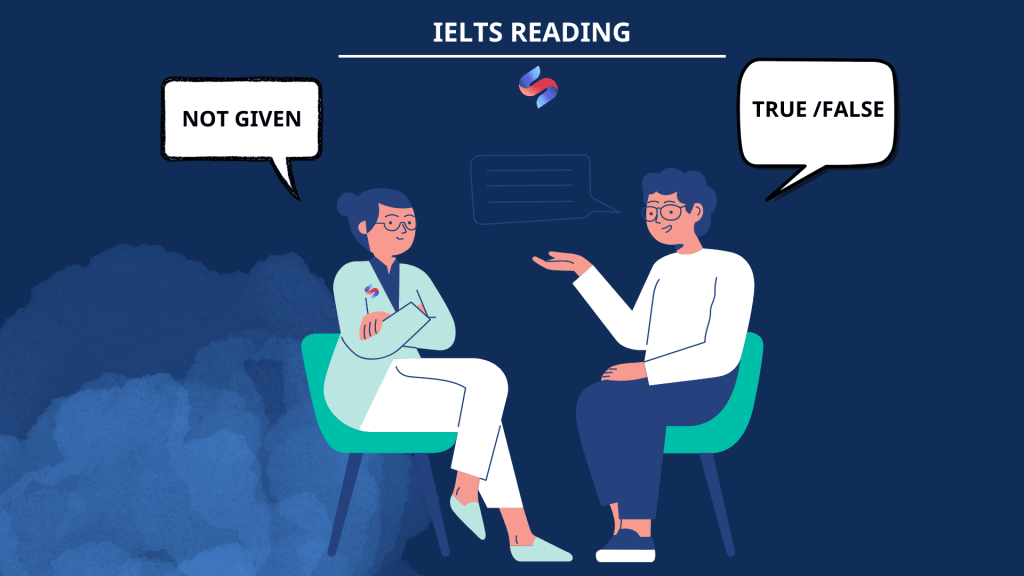
The meaning and power of smell
The sense of smell, or olfaction, is powerful. Odours affect us on a physical, psychological and social level. For the most part, however, we breathe in the aromas which surround us without being consciously aware of their importance to us. It is only when the faculty of smell is impaired for some reason that we begin to realise the essential role the sense of smell plays in our sense of well-being
A A survey conducted by Anthony Synott at Montreal’s Concordia University asked participants to comment on how important smell was to them in their lives. It became apparent that smell can evoke strong emotional responses. A scent associated with a good experience can bring a rush of joy, while a foul odour or one associated with a bad memory may make us grimace with disgust. Respondents to the survey noted that many of their olfactory likes and dislikes were based on emotional associations. Such associations can be powerful enough so that odours that we would generally label unpleasant become agreeable, and those that we would generally consider fragrant become disagreeable for particular individuals. The perception of smell, therefore, consists not only of the sensation of the odours themselves, but of the experiences and emotions associated with them.
B Odours are also essential cues in social bonding. One respondent to the survey believed that there is no true emotional bonding without touching and smelling a loved one. In fact, infants recognise the odours of their mothers soon after birth and adults can often identify their children or spouses by scent. In one well-known test, women and men were able to distinguish by smell alone clothing worn by their marriage partners from similar clothing worn by other people. Most of the subjects would probably never have given much thought to odour as a cue for identifying family members before being involved in the test, but as the experiment revealed, even when not consciously considered, smells register.
C In spite of its importance to our emotional and sensory lives, smell is probably the most undervalued sense in many cultures. The reason often given for the low regard in which smell is held is that, in comparison with its importance among animals, the human sense of smell is feeble and undeveloped. While it is true that the olfactory powers of humans are nothing like as fine as those possessed by certain animals, they are still remarkably acute. Our noses are able to recognise thousands of smells, and to perceive odours which are present only in extremely small quantities.
D Smell, however, is a highly elusive phenomenon. Odours, unlike colours, for instance, cannot be named in many languages because the specific vocabulary simply doesn’t exist. ‘It smells like . . . ,’ we have to say when describing an odour, struggling to express our olfactory experience. Nor can odours be recorded: there is no effective way to either capture or store them over time. In the realm of olfaction, we must make do with descriptions and recollections. This has implications for olfactory research.
E Most of the research on smell undertaken to date has been of a physical scientific nature. Significant advances have been made in the understanding of the biological and chemical nature of olfaction, but many fundamental questions have yet to be answered. Researchers have still to decide whether smell is one sense or two – one responding to odours proper and the other registering odourless chemicals in the air. Other unanswered questions are whether the nose is the only part of the body affected by odours, and how smells can be measured objectively given the non¬physical components. Questions like these mean that interest in the psychology of smell is inevitably set to play an increasingly important role for researchers.
F However, smell is not simply a biological and psychological phenomenon. Smell is cultural, hence it is a social and historical phenomenon. Odours are invested with cultural values: smells that are considered to be offensive in some cultures may be perfectly acceptable in others. Therefore, our sense of smell is a means of, and model for, interacting with the world. Different smells can provide us with intimate and emotionally charged experiences and the value that we attach to these experiences is interiorised by the members of society in a deeply personal way. Importantly, our commonly held feelings about smells can help distinguish us from other cultures. The study of the cultural history of smell is, therefore, in a very real sense, an investigation into the essence of human culture.
- Giải thích từ vựng
- Powerful (a)/ˈpaʊə.fəl/ có tác động mạnh
Eg: Her speech about cruelty to children was very powerful.
There was a powerful smell of garlic.
Một số từ đồng nghĩa:
- Strong I felt a strong urge to hug him.
- Intense She learned that even intense emotional pain passes.
- Fierce The people have a fierce pride in their country.
- Deep He suffered from a deep feeling of inadequacy.
- Deep-seated He has a deep-seated loathing of snobbery.
- Consciously (adv) /ˈkɒn.ʃəs.li/ có ý thức, có chủ ý
Eg: I don’t think she’s consciously rude to people – it’s just the way she is.
Conscious (adj)
Collocation:
Be conscious of
Một số từ đồng nghĩa:
- Intentionally
- Purposely
- Impaired (a) /ɪmˈpeərd/ suy yếu, thiếu, khiếm khuyết
Eg: She attended a school for the visually impaired
He was given a ticket for driving while impaired by alcohol.
His memory is impaired.
Impair (v)
Impairment (n)
- Essential (a) /ɪˈsen.ʃəl/ necessary or needed: thiết yếu
Eg: Government support will be essential if the project is to succeed.
Một số từ đồng nghĩa:
- Crucial: Her work has been crucial to the project’s success.
- Indispensable: This book is an indispensable resource for researchers.
- Vital: A strong opposition is vital to a healthy democracy.
- Scent (n) /sent/ hương thơm
Eg: The scent of roses.
She dabbed herself with scent.
Một số từ đồng nghĩa:
- Smell What’s that terrible smell?
- Aroma The delicious aroma of fresh bread wafted out of the bakery.
- Fragrance I adore the delicate fragrance of roses.
- Perfume The perfume of the flowers filled the room.
- Grimace (v) /ˈɡrɪm.əs/ nhăn mặt, nhăn nhó
Eg: He tried to stand and grimaced with pain.
- Disgust (n) /dɪsˈɡʌst/: cảm giác rất ghét cái gì
Eg: She walked out in disgust.
Disgust (v)
Disgusted (n)
Một số từ đồng nghĩa:
- Distaste: She looked at the advertisement with distaste before walking quickly on.
- Animosity: In spite of his injuries, he bears no animosity towards his attackers.
- Fragrant (a) /ˈfreɪ.ɡrənt/ thơm
Eg: The sauce itself was light, fragrant and slightly sweet.
Từ đồng nghĩa:
- Perfumed: He smelt strongly of perfumed oil and carried with him a number of peacock feathers and a bundle of grubby charms.
- Bonding (n) /ˈbɑn·dɪŋ/: mối liên hệ, sự liên kết
Eg: Much of the bonding between mother and child takes place in those early weeks.
Từ đồng nghĩa:
- Relationship: Scientists have established the relationship between lung cancer and smoking.
- Link: There’s a direct link between diet and heart disease.
- Infant (n) /ˈɪn.fənt/: đứa bé, trẻ con
Eg: She has five children, the youngest of whom is still an infant.
Một số từ đồng nghĩa:
- Baby She is having a baby in the spring.
- Newborn Newborn babies are not able to focus their eyes fully for the first few weeks of life.
- New baby Bringing home a new baby can be a confusing time for parents.
- Distinguish (v) /dɪˈstɪŋ.ɡwɪʃ/: nhận ra sự khác nhau giữa các vật và người
Eg: He’s colour-blind and can’t distinguish (the difference) between red and green easily.
It’s not the beauty so much as the range of his voice that distinguishes him from other tenors.
Collocation
- Distinguish sth from sth
Từ đồng nghĩa:
- Differentiate: We do not differentiate between our employees on the basis of their race, religion, or national origin.
- Acute (a) /əˈkjuːt/: nghiêm trọng, rất, vô cùng
Eg: She felt acute embarrassment/anxiety/concern at his behaviour.
Một số từ đồng nghĩa:
-
- Serious Drugs have become a serious problem in a lot of schools.
- Extreme They live in extreme poverty.
- Severe In parts of Africa there is a severe food/water shortage.
- Phenomenon (n) /fəˈnɒm.ɪ.nən/: hiện tượng, sự vật phi thường
Eg: Gravity is a natural phenomenon.
Số nhiều: Phenomena
- Effective (a) /ɪˈfek.tɪv/: hiệu quả, hiệu nghiệm, đem lại kết quả mong muốn
Eg: She’s a very effective teacher.
Trái nghĩa: ineffective
Một số từ đồng nghĩa:
- Useful These useful gadgets should find a home in every kitchen.
- Helpful They gave us some really helpful advice.
- Valuable He was able to provide the police with some valuable information.
- Measure (v) /ˈmeʒ.ər/: đo lường, đong, trắc lượng
Eg: There is no way of measuring the damage done to morale.
Collocation:
- measure sb/sth against sb/sth
- measure sth out
- measure up
- measure sb/sth up
Từ đồng nghĩa:
- judge: Long-term investors have experience in judging risk.
- Objective (a) /əbˈdʒek.tɪv/ khách quan
Eg: It’s hard to be objective about your own family.
objectively (adv)
objectivity (n)
Collocation
- be objective about sth
- Inevitably (adv) /ɪˈnev.ɪ.tə.bli/: Không thể tránh được, chắc chắn xảy ra
Eg: Their arguments inevitably end in tears.
The investigation into the air crash would inevitably apportion blame to certain members of the crew.
inevitable (adj)
Từ đồng nghĩa:
- ineluctably
- Offensive (a) /əˈfen.sɪv/: xỉ nhục, xúc phạm, gây khó chịu
Eg: We’ve received a complaint from one of our listeners about offensive language.
The word ‘lady’ has connotations of refinement and excessive femininity that some women find offensive.
Trái nghĩa: Inoffensive
Từ đồng nghĩa:
- rude It’s rude not to say “Thank you” when you are given something.
- Acceptable (a) /əkˈsept.ə.bəl/ chấp nhận được, được mọi người chấp nhận/ cho phép
Eg: We hope that you will consider our offer acceptable.
Collocation: be acceptable to
Từ đồng nghĩa:
- satisfactory The teachers seem to think his work is satisfactory.
- Interact (v) /ˌɪn.təˈrækt/ tương tác, ảnh hưởng lẫn nhau
Eg: We are studying how these two chemicals interact.
Interaction (n)
Collocation: interact with
Từ đồng nghĩa:
-
- Communicate I find I just can’t communicate with her.
- React She slapped him and called him names, but he didn’t react.
- Intimate (a) /ˈɪn.tɪ.mət/ thân mật mật, ấm cúng
Eg: He’s become very intimate with an actress.
They had dinner in the very intimate surroundings of a local restaurant.
Một số từ đồng nghĩa:
- Warmly She greeted the proposals warmly.
- Cosy This room is nice and cosy in the winter.
- Attach (v) /əˈtætʃ/ buộc chặt, gắn vào
Eg: If you attach a negative label to a group, you can then treat all the members of that group badly.
Collocation
- attach sth to sth
- attach to sb/sth
attachment (n)
- Interiorise (v) /in´tiəriə¸raiz/: tiếp thu các ý kiến quan điểm để nó trở nên một phần của chính mình
Eg: The play, as Shakespeare interiorised it, was the thing.
Từ đồng nghĩa:
- Internalise He had not expected the people so readily to internalize the values of democracy.
- Psychological (a) /ˌsaɪ.kəlˈɒdʒ.ɪ.kəl/ thuộc tâm lý
Eg: He claims that the constant aircraft noise has a bad psychological effect on the residents.
She claimed that the way she had been treated at work had caused her extreme emotional and psychological distress.
psychologically (adv)
psychology (n)
- Individual (n) /ˌɪn.dɪˈvɪdʒ.u.əl/ cá nhân, cá thể, vật riêng lẻ
Eg: We try to treat our students as individuals.
- Luyện tập
Bài 1: Chọn đáp án đúng để điền vào chỗ trống
- The words are flashed on the screen too quickly to be ……………………… noticed. A. objectively B. consciously
- There is now ………………………experimental evidence that this tends to promote and maintain cooperation. A. powerful B. essential
- He ……………………..in pain as the surgeon removed his bandages. A.distinguished B. grimaced
- There is ………………………….. work to be done before the building can be re-occupied. A. objective B. essential
- Flowers are chosen for their …………….. as well as their look. A. scent B. bounding
- We are demonstrating to show our anger and ……………….at the treatment of refugees. A. infant B. disgust
- He was very unwell as an……………….., and was not expected to live into adulthood. A. disgust B. infant
- The flowers of about 27% of species were known to be………………………., and 32% not. A. fragrant B. accute
- The stone does more than liberate sigils from the Lights ‘ control and abolish ……………….. A. bonding B. scent
- I sometimes have difficulty …………………Spanish from Portuguese. A. distinguishing B. measuring
- The room ……………………five metres across. A. measures B. interacts
- The problem of poverty is particularly ……………………in rural areas. A. effective B. acute
- There’s evidence to suggest that child abuse is not just a recent…………….. A. objective B. phenomenon
- The lighting for the production made a very ………………..use of shadow. A. objective B. effective
- I can’t really be …………………..when I’m judging my daughter’s work. A. objective B. psychological
Bài 2: Chọn từ trong khung để hoàn thành các câu bên dưới
| acceptable
attached |
individual
interacts |
interiorising
psychological |
evitably
offensive |
intimate
objective |
- One or two mistakes are ………………………. but no more than that.
- I can’t really be ……………….. when I’m judging my daughter’s work.
- Such a large investment ………………………. entails some risk.
- This programme contains language that some viewers might find …………………
- Dominique’s teacher says that she …………………… well with the other children.
- One bad review and I’m …………………….it.
- The restaurant has a very ……………………….. atmosphere.
- Every ………………..has rights which must never be taken away.
- Tom was ……………………to the Marketing Department for six months.
- We are concerned with the physical and ……………………..well-being of our employees.
Bài 1:
| 1. B | 2. A | 3. B | 4. B | 5. A |
| 6. B | 7. B | 8. A | 9. A | 10. A |
| 11. A | 12. B | 13. B | 14. B | 15. A |
Bài 2:
1.acceptable 2. objective 3. inevitably 4. offensive 5. interacts
- interiorising 7. intimate 8. individual 9. attached 10.pPsychological













